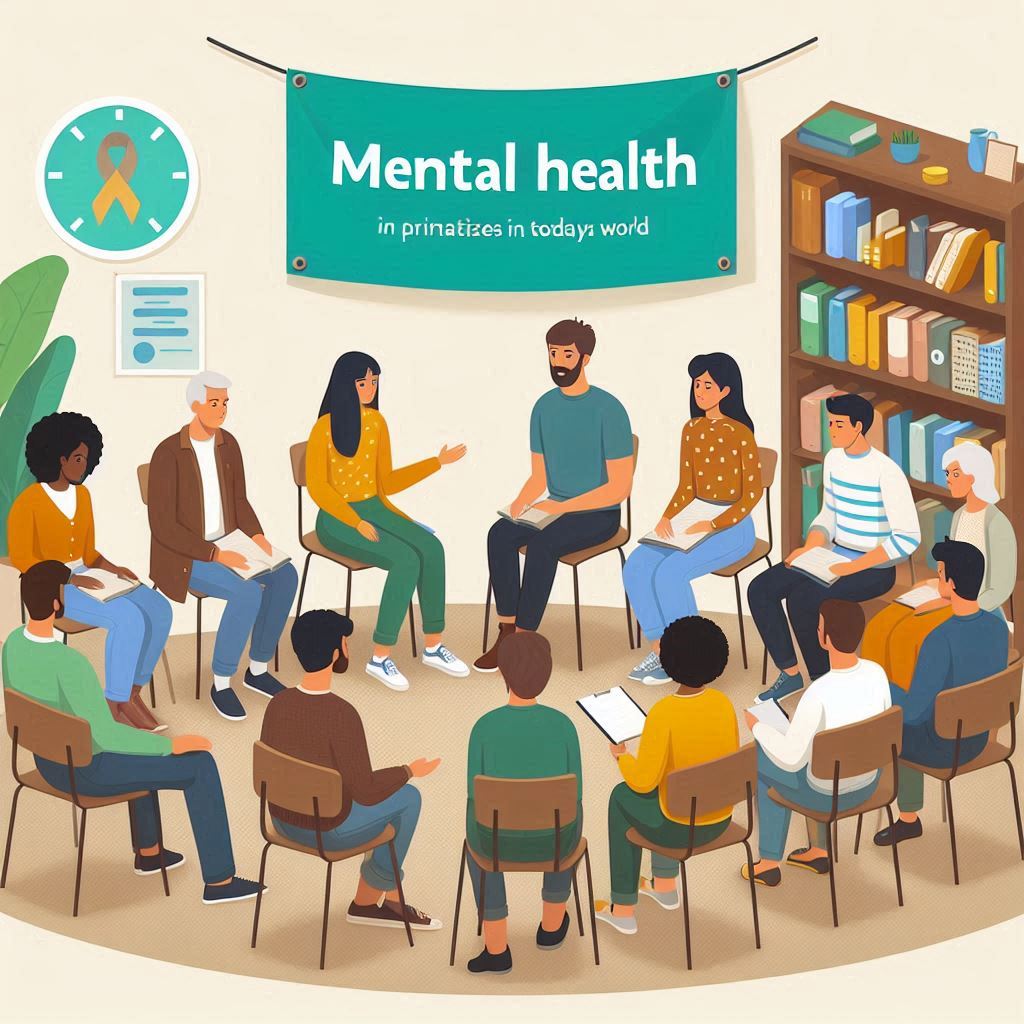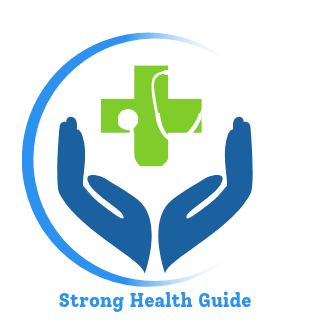Mental health, often defined as the state of our emotional, psychological, and social well-being, plays a crucial role in how we think, feel, and act. It influences our resilience, relationships, and day-to-day functioning. As awareness around mental health grows, people are beginning to recognize its importance to overall health and well-being. Unfortunately, mental health issues still carry stigma and are often misunderstood or overlooked. In a world where individuals face an ever-increasing pace of life, complex social challenges, and rising mental health concerns, understanding and prioritizing mental health is more important than ever.

The Rising Prevalence of Mental Health Issues
In recent years, mental health challenges have risen significantly. Studies show that depression, anxiety, and other mental health disorders affect millions worldwide. According to the World Health Organization (WHO), depression affects approximately 280 million people globally, making it one of the leading causes of disability. Meanwhile, anxiety disorders affect nearly 264 million people, particularly impacting those in their prime working and family-building years. Such mental health concerns impact productivity, relationships, and the quality of life, underscoring the need for effective strategies to address them.
Factors Contributing to Mental Health Challenges
Several factors contribute to the growing prevalence of mental health issues. Genetics, environmental factors, lifestyle choices, trauma, and societal pressures all play a role. For example, exposure to chronic stress, whether from workplace demands, family responsibilities, or financial burdens, can lead to burnout, anxiety, and depression. Social isolation, which increased during the COVID-19 pandemic, has also exacerbated mental health issues, especially among the elderly and young adults.
Additionally, the rapid rise in social media use has created new stressors. The constant comparison to others, exposure to cyberbullying, and feelings of inadequacy have been linked to anxiety, depression, and low self-esteem, particularly among teenagers and young adults. These challenges point to the need for a multifaceted approach to mental health, one that involves individuals, communities, and governments working together to foster healthier environments and coping strategies.
The Impact of Mental Health on Physical Health
Mental health and physical health are intricately connected, and issues with one can often exacerbate the other. Mental health disorders can lead to behaviors like poor diet, sedentary lifestyle, or substance abuse, which increase the risk of physical health issues such as heart disease, diabetes, and obesity. Likewise, chronic physical conditions can contribute to mental health struggles, creating a cycle that impacts overall well-being.
The stress hormone cortisol, for instance, is released in response to psychological stress and can negatively affect the cardiovascular and immune systems if chronically elevated. Depression and anxiety are also associated with higher inflammation levels, a known contributor to numerous health conditions. Therefore, managing mental health proactively not only protects psychological well-being but also promotes a longer, healthier life.
Reducing Stigma and Encouraging Open Dialogue
One of the most significant barriers to addressing mental health issues is the stigma surrounding them. Stigma can make people feel ashamed of their struggles and hesitant to seek help. However, reducing this stigma is essential to fostering environments where individuals feel comfortable discussing and addressing their mental health.
Community programs, workplace policies, and media campaigns play essential roles in breaking down these stigmas. For instance, educational initiatives that promote understanding mental health as a normal and critical component of health help reshape public attitudes. Furthermore, support from public figures who share their experiences can also encourage others to seek help and view mental health challenges without shame.
Strategies for Enhancing Mental Health
Prioritizing mental health involves a combination of personal practices, community support, and professional resources. Here are several strategies that individuals and society can adopt to enhance mental health:
- Regular Physical Activity: Exercise has been shown to release endorphins and reduce symptoms of depression and anxiety. Activities like walking, jogging, and yoga not only improve physical health but also enhance mood and relieve stress.
- Mindfulness and Meditation: Mindfulness practices, such as meditation, deep breathing, and progressive muscle relaxation, help individuals manage stress and stay present. Research has shown that mindfulness can reduce symptoms of anxiety and depression, promoting a sense of calm and control.
- Quality Sleep: Sleep is a fundamental component of mental well-being. Poor sleep is linked to various mental health issues, including depression and anxiety. Prioritizing good sleep hygiene, such as establishing a regular sleep schedule and creating a restful environment, is essential.
- Social Connections: Building and maintaining healthy relationships provide emotional support, reduce feelings of loneliness, and help people cope with stress. Spending time with family, friends, or joining community groups can create a strong support system that enhances mental resilience.
- Seeking Professional Help: Therapy, counseling, and, when necessary, medication can be invaluable tools for managing mental health conditions. Therapy types such as cognitive-behavioral therapy (CBT) and dialectical behavior therapy (DBT) have been shown to be effective in treating a range of mental health issues. Professional support should be viewed as a proactive, positive step toward mental well-being.
- Setting Boundaries with Technology: Managing screen time and limiting exposure to social media can mitigate some mental health issues associated with digital life. Setting boundaries on technology use, especially before bed, can reduce stress and promote better sleep.
The Role of Communities and Workplaces in Supporting Mental Health
Mental health should not be seen as merely an individual’s responsibility but as a collective one that involves family, community, workplaces, and healthcare providers. Communities can foster safe environments by offering mental health resources, such as support groups and access to affordable counseling services. Schools and workplaces can contribute by providing mental health days, creating policies that support work-life balance, and offering employee assistance programs.
Employers benefit from promoting mental health in the workplace, as mentally healthy employees are more productive, engaged, and less likely to take extended leaves. Implementing mental health-friendly policies can lead to a more resilient, satisfied workforce, which benefits both the employees and the organization.
Conclusion
Mental health is a crucial component of a fulfilling life. Prioritizing mental well-being requires collective efforts to create supportive environments that empower individuals to seek help and adopt habits that enhance resilience. Reducing stigma, improving access to mental health resources, and fostering open dialogue are essential steps in ensuring that mental health is recognized as integral to overall health. As society moves toward a more holistic understanding of health, mental well-being must remain at the forefront, ensuring that everyone has the opportunity to lead a healthy, balanced life.
